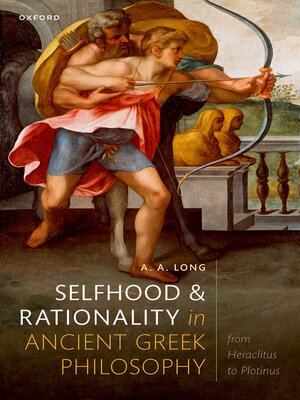Selfhood and Rationality in Ancient Greek Philosophy
ebook ∣ From Heraclitus to Plotinus
By A. A. Long

Sign up to save your library
With an OverDrive account, you can save your favorite libraries for at-a-glance information about availability. Find out more about OverDrive accounts.
Find this title in Libby, the library reading app by OverDrive.



Search for a digital library with this title
Title found at these libraries:
| Library Name | Distance |
|---|---|
| Loading... |
A. A. Long presents fourteen essays on the themes of selfhood and rationality in ancient Greek philosophy. The discussion ranges over seven centuries of innovative thought, starting with Heraclitus' injunction to listen to the cosmic logos, and concluding with Plotinus' criticism of those who make embodiment essential to human identity. For the Greek philosophers the notion of a rational self was bound up with questions about divinity and happiness called eudaimonia, meaning a god-favoured life or a life of likeness to the divine. While these questions are remote from current thought, Long also situates the book's themes in modern discussions of the self and the self's normative relation to other people and the world at large. Ideas and behaviour attributed to Socrates and developed by Plato are at the book's centre. They are preceded by essays that explore general facets of the soul's rationality. Later chapters bring in salient contributions made by Aristotle and Stoic philosophers. All but one of these pieces has been previously published in periodicals or conference volumes, but the author has revised and updated everything. The book is written in a style that makes it accessible to many kinds of reader, not only professors and graduate students but also anyone interested in the history of our identity as rational animals.







